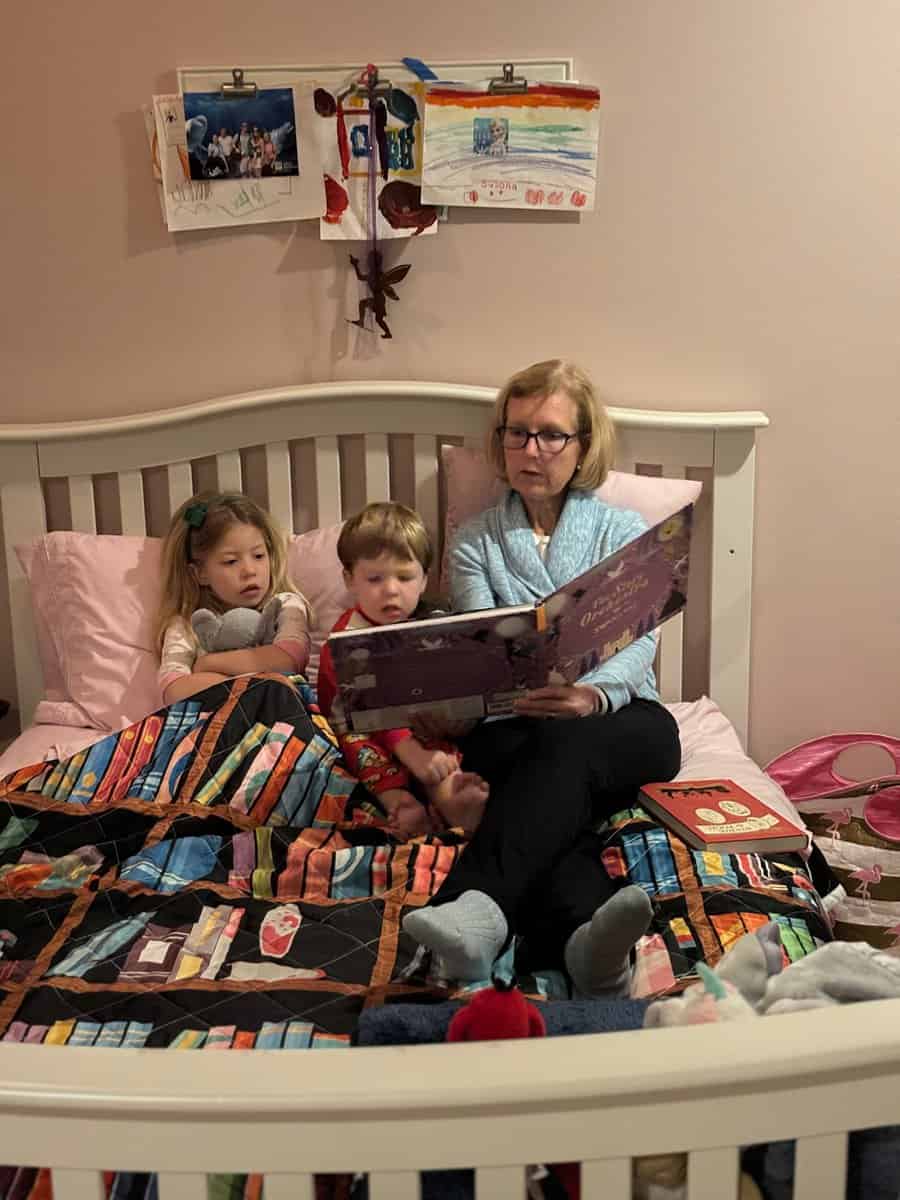
Do you like to tell stories? If you do, I bet you’re good at it. I don’t consider myself a good storyteller. When I was working at a school library, I always practiced reading the stories aloud so they would be entertaining for the preschool/primary school students. Just as when I’m giving a presentation or teaching an organizing class, I practice what I want to say. Jokes, when I tell them usually land flat because of my delivery. And, when I go to tell a story to a small circle of people at a party, I get a little tongue-tied and lose the thread. These are facts, not fiction. There are other stories, though, I know you will know what I’m talking about. These are the stories we tell ourselves when we think we can’t or don’t want to do something. Are we telling ourselves the truth?
The Impact of the stories we tell ourselves
I tell myself all sorts of stories when I don’t honestly want to do something. I may write on my daily list that I want to file papers, organize my pictures, or sweep the garage. During the day these things may get pushed later and later until there’s no time left, and I haven’t done these things. The story I tell myself is that I don’t have time to do them. The truth is that filing papers, organizing pictures, and sweeping the garage are not really things I want to do. They are things that I tell myself I should do.
It’s a story. Does it matter if they get done? NOPE. Eventually I get around to filing the papers I want to keep and sweeping the garage. As for organizing the pictures – that has yet to happen. I had much more fun doing that when I had hardcopy pictures. Organizing digital pictures isn’t fun for me although I know I should do it so that I can find the picture I am looking for when I want it. The stories we tell ourselves have an impact on what gets done.
Be clear about what is important
I was listening to a virtual client the other day (you realize I have altered the details to protect my client) talk about recycling. She was telling me reasons why it was going to be impossible to remove the recycling from her house and put it out to be picked up. This was not the first time I had heard this story, nor (I am positive) was it going to be the last. Every week this client says the top priority is to flatten shipping boxes and put them out with the recycling. She wants to have the hall where these boxes land free of clutter. This is important to her.
There were a multitude of reasons the recycling was not going to leave her house this week. All of which my client believed to be true. I provided her with ideas to help her make it happen, but none were going to work. The story she was telling herself was that other things were preventing her from addressing recycling. She said recycling boxes and removing them from her home was important to her. The reality is that she was placing greater importance on other things. Until those things are addressed, the boxes will stay where they are.
My next step is to work with my client to better define what is important. The story this client was telling herself was that everything else had to happen before she could turn her attention to what she was telling herself is important.
What happens when the story is fiction (or an outright lie)?
Are the stories you tell yourself lies? I have been known to exaggerate and turn a negative molehill into a seemingly insurmountable mountain. It doesn’t happen often but when it does the negative story turns the day into a terrible awful no-good very bad day. Do you remember the children’s story by Judith Viorst: Alexander and the Terrible, Horrible, No Good, Very Bad Day?
My strategy for getting past this is to reframe the negative story and identify what I can learn from the experience.
Here are a few stories I’ve heard clients tell themselves. These stories do more harm than good. My job is to help them create organizing strategies so they can turn these fictional negative stories into stories which end ‘happily ever after’.
I’m a bad person
Stella used to tell me she was a bad person because she rarely ever attended to any household tasks. She was challenged by migraine headaches, depression, and ADHD. Stella worked full-time and was tired when she came home. She wanted (or said she wanted) to have a clean and tidy home and to do a household task or two each day so her weekend was completely free to spend as she chose.
We created a variety of different chores or task lists to guide her but each time I visited her home none of the tasks were completed. Stella told me as I entered her home that she was a bad person because she let all the work we had done the previous session fall apart.
The story Stella was telling herself was demoralizing. She is a beautiful person inside and out. Telling herself she is a bad person is an outright lie and is harmful.
She was not (is not) a bad person. Stella’s challenge is not her character. It is depression which sucks the energy out of her to the point where it’s difficult to even get dressed and go out the door to work.
Since Stella wants a clean and tidy home and since the chores are difficult to get to, I suggested hiring a cleaning company to do the heavy cleaning tasks leaving Stella with just the light dusting periodically. This freed up the time I spent with Stella to tackle other organizing projects.
My home will never be perfectly organized
This story is true. I believe no one is ever perfectly organized. How can we be when life is messy? If we are living (which we are) in our homes, things are bound to get out of place.
The story this client was telling herself was based on picture-perfect homes in magazines. She wanted her kitchen, family room, dining room, and bedroom to look like the gorgeous pictures in magazines.
We talked about how unrealistic this is when you have a family. We can make it perfect, take a picture, and then go about the business of life.
I taught this client the importance of realistic expectations partnered with maintenance routines.
She decided that if things are clean, tidy, and that everything has a home, it is good enough.
What kind of stories do you tell yourself? Do you make mountains out of molehills and exaggerate the negative? Is the story you are telling fact or fiction? Do you set unrealistic expectations for yourself? The stories we tell ourselves have a powerful impact. Let’s work on sticking to the facts so the things we tell ourselves match up with reality.
Diane N. Quintana is an ICD Master Trainer, Certified Professional Organizer in Chronic Disorganization, Certified Professional Organizer, owner of DNQ Solutions, LLC and co-owner of Release Repurpose Reorganize LLC based in Atlanta, Georgia


I was having a conversation with my husband about this very thing. There are certain stories that I have told myself, and really, I think they are just excuses. I love your example of the lady and her recycling. She could do it if she wanted, but something kept her from doing it. It’s probably the story somewhere that she stinks at keeping up with recycling. The recycling is neutral. It’s her story about herself that turns it into good or bad. I will journal a little more about these stories I tell myself and what they are keeping me from doing. Thank you.
We talk about mindset so much now and how we need to have or change our mindset to be successful. I like the story analogy you have written about. It is a gentle way to talk to them about what story would they like to write about their day and their life. Do they like writing fiction or nonfiction stories? With this conversation, you can help them to see what is important in their life and that they are hiding in the story because they are afraid of telling the entire story. Working with clients can be a mystery. I love the blanket picture.